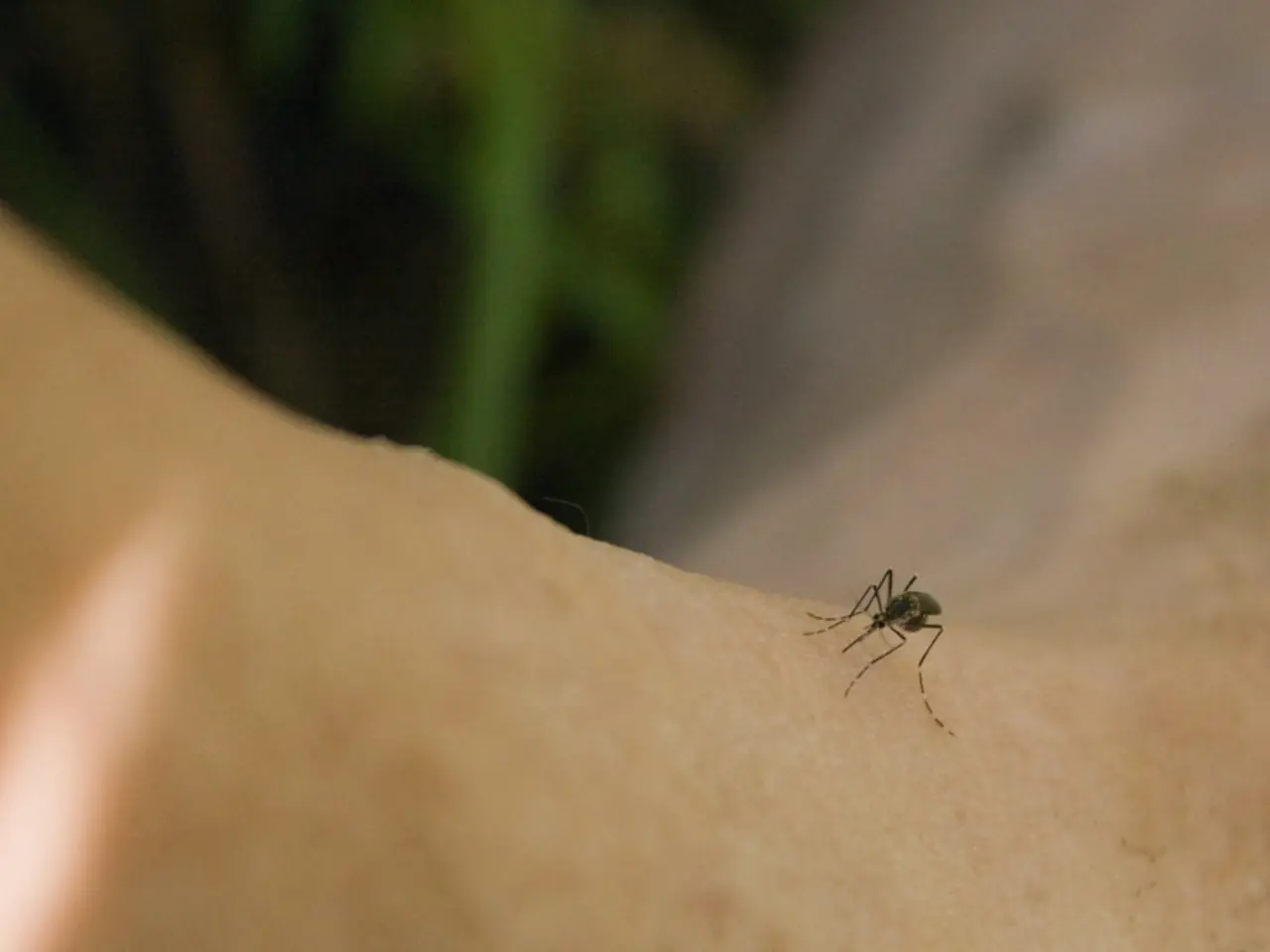Reason Behind Mosquitoes' Preference for Biting Certain Individuals, Discussed by Medical Professionals
In the city and beyond, understanding the factors that attract mosquitoes to humans can help us take preventative measures against these pesky insects, who are carriers of many diseases.
Mosquitoes are drawn to a variety of chemical compounds, with carbon dioxide (CO₂) being a key attractant. This gas is expelled from human breath and can be detected from a distance, serving as an initial cue for mosquitoes to locate hosts. Lactic acid, found in human sweat, is another significant attractant. Other chemicals in sweat and skin such as octenol (mushroom alcohol), acetone, sulcatone, ammonia, fatty acids, and volatile organic compounds (VOCs) also mimic human odors and draw mosquitoes[2][3][4].
Genetics and metabolism play a role in how much and which chemical signals a person emits. For example, people with higher metabolism or larger body size may exhale more CO₂, making them more detectable to mosquitoes[1][3].
Physical activity, body heat, and movement also attract mosquitoes. When we exercise, our body temperature rises, and we sweat more, releasing more lactic acid and other chemical attractants, making active individuals more appealing mosquito targets[1][3].
Blood type may also influence attraction, with some studies suggesting people with blood type O may be more attractive to mosquitoes than those with other blood types[1].
Diet and alcohol consumption can subtly affect mosquito attraction, with certain foods potentially altering body odor and reducing mosquito interest. However, the impact of diet is considered minor overall according to some sources[1][5]. Alcohol consumption, on the other hand, notably increases attractiveness to mosquitoes, possibly by increasing ethanol content in sweat and body temperature[1].
Clothing color can also affect mosquito attraction, with dark clothing attracting more mosquitoes than light colors, likely because mosquitoes use visual cues after detecting CO₂ and body heat[1].
It's important to note that while some factors can make us more vulnerable to mosquito bites, the hypothesis that a person's diet can significantly affect mosquito interest needs further study and confirmation.
Symptoms such as a significant increase in the affected area, tissue hyperemia around the bite, fever, dizziness, general weakness, nausea, breathing difficulties, chest tightness, and widespread skin rash may require medical attention after a mosquito bite.
By understanding these factors, we can take proactive steps to protect ourselves from mosquito bites and the diseases they carry. This includes wearing protective clothing, using insect repellent, and avoiding activities that increase our attractiveness to mosquitoes, such as consuming alcohol and engaging in intense physical activity before sunset.
Read also:
- Trump's SNAP reductions and New York City Council's grocery delivery legislation: Problems for city residents highlighted
- Reducing dental expenses for elderlies in Sweden: Over 50% cut in charges for pensioners by the government
- Forty-year-old diet: A list of meal choices to savor
- Exiled Life's Conundrum: A Blend of Liberation, Disillusionment, and Distress







